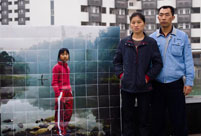SINGAPORE, Oct. 23 -- Chinese leaders on visits to Southeast Asia over the recent three weeks more than reinforced the country's commitment to the pursuit of friendly relations with its neighbors, observers said.
By proposing frameworks and projects that are detailed enough, they demonstrated that the world's largest developing economy is keen to upgrade the mutually-beneficial cooperation with its Southeast Asian neighbors.
Vice Premier Zhang Gaoli wound up his three-day visit to Singapore on Wednesday. President Xi Jinping and Premier Li Keqiang visited Indonesia, Malaysia, Brunei, Thailand and Vietnam earlier this month.
Zhang and his Singaporean counterpart Teo Chee Hean co-chaired three high-level cooperation mechanism meetings, with officials highlighting four areas of cooperation, namely, economic transformation, financial services, cultural and people-to-people exchanges and inclusive and sustainable growth.
They also witnessed the signing of seven memorandums of understanding and agreements that covered services trade, joint investment in third countries, as well as food safety.
"This at least gives us some clues as to how the two sides can achieve 'an upgraded version' of the bilateral cooperation," said Li Mingjiang, associate professor at the S. Rajaratnam School of International Studies, Nanyang Technological University.
The scholar said that the cooperation has always been visionary, with the flagship cooperation projects such as the Suzhou Industrial Park and the Tianjin Eco-City helping chart the development paths for China.
The Suzhou Industrial Park was launched in the 1990s to spur the growth of the manufacturing industries. The Tianjin Eco-City was launched in 2008 as a replicable resource-efficient city to spearhead China's pursuit of sustainable growth.
"We highlighted the specific areas for the cooperation so that it stays visionary and exemplary," said a Chinese official who participated in the meetings.
Chinese leaders have called for efforts to achieve "an upgraded version" of the bilateral cooperation, which has flourished over the past decades to make Singapore China's third largest source of foreign direct investment after China's Hong Kong and Japan.
The city state of 5.4 million people is also China's second largest trading partner and third largest export market within the Association of Southeast Asian Nations (ASEAN).
"The key concepts of mutual benefits and mutual respect, I feel, are strongly demonstrated in the relationship between China and Singapore," said Lye Liang Fook, assistant director of the East Asian Institute, National University of Singapore.
Mutually beneficial cooperation was also the essence of Xi Jinping and Li's diplomatic efforts on their respective visits to five Southeast Asian neighbors and regional fora.
Xi reiterated China's commitments to the pursuit of friendly ties with its ASEAN neighbors and called for efforts to build a symbiotic relationship.
"We should respect each other's rights to independently choose their own social system and development path, as well as each other's efforts to explore and pursue economic and social development, and improve people's lives," he said.
Li proposed that China and ASEAN consider forging a treaty on the pursuit of friendly relations and win-win cooperation.
Alistair Cook, a visiting research fellow at the East Asian Institute, National University of Singapore, said it is important to highlight continued commitment to friendly relations, particularly when complex issues and multiple agenda overlap.
"The main aim is to reinforce their commitment to friendly relations even when there is difficult terrain to navigate between China and Southeast Asian nations, such as territorial disputes in the South China Sea," he said.
The Chinese leaders threw weight behind their words by pledging efforts to boost win-win cooperation and proposing major cooperation projects in trade, finance and infrastructure.
"It is a signal that China does not want this to characterize their relations and wants to focus on areas where progress can be made -- improved trade and investment, for example," Cook said.
Termsak Chalermpalanupap, lead researcher for political and security affairs at the Institute of Southeast Asian Studies in Singapore, said that he believes ASEAN nations as a group see China's rise as an opportunity.
"Half of our (diplomatic) activity is about economic cooperation. So China has a very strong advantage to work with ASEAN on economic cooperation," he said.
The efforts to upgrade the bilateral cooperation between China and Singapore also fits in the framework of upgrading the China- ASEAN cooperation.
The cooperation between China and Singapore has gone a long way beyond industrial parks, covering areas such as finance, services sector and, most recently, social management.
From the Suzhou Industrial Park to the Tianjin Eco-City, the two projects "show that the two countries are constantly reviewing their cooperation and identifying new ones to stay relevant to each other," Lye said.
Lee Mingjiang believes that Singapore, as the country coordinator for China within ASEAN next year, shall be able to play a role in boosting the trust between China and its ASEAN neighbors, though it may want to maintain a balance between China and other powers.
 Low wages Indian migrant laborers
Low wages Indian migrant laborers Five fighters in flight training
Five fighters in flight training London mayor hails free trade, subway system on China tour
London mayor hails free trade, subway system on China tour Different eye catching shows at housing fairs in China
Different eye catching shows at housing fairs in China Special family portraits call attention to left-behind children
Special family portraits call attention to left-behind children Tibetan girl helps mobilize volunteers onlin
Tibetan girl helps mobilize volunteers onlin Lingerie show dazzles Wuhan Motor Show 2013
Lingerie show dazzles Wuhan Motor Show 2013  Running in fun customs at Beijing Int'l Marathon
Running in fun customs at Beijing Int'l Marathon  Weekly Sports Photos
Weekly Sports Photos Chinese riot police take Liberia peacekeeping mission
Chinese riot police take Liberia peacekeeping mission World has never been dark-- a blind kid’s life in Tibet
World has never been dark-- a blind kid’s life in Tibet Change to law may make it easier to sue polluters
Change to law may make it easier to sue polluters UNESCO world heritage site: Montale Tower
UNESCO world heritage site: Montale Tower U.S. Senate leader announces bipartisan deal
U.S. Senate leader announces bipartisan deal Chinese screen goddesses from Beijing Film Academy
Chinese screen goddesses from Beijing Film Academy Day|Week|Month